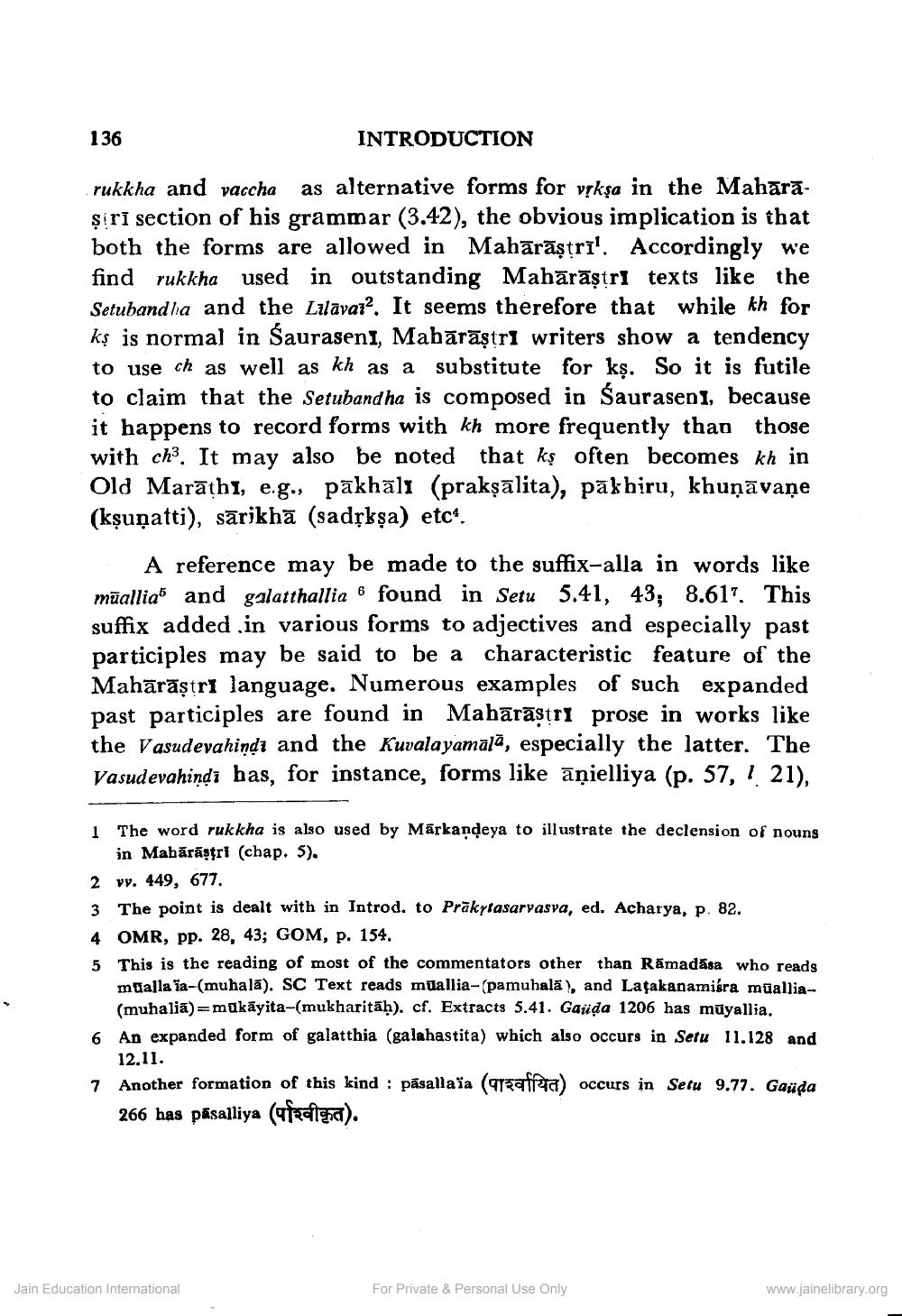________________
136
INTRODUCTION
rukkha and vaccha as alternative forms for vṛkşa in the Mahārā ștri section of his grammar (3.42), the obvious implication is that both the forms are allowed in Mahārāṣṭri'. Accordingly we find rukkha used in outstanding Mahārāṣṭri texts like the Setubandha and the Lilava2. It seems therefore that while kh for ks is normal in Šauraseni, Mahārāṣṭrī writers show a tendency to use ch as well as kh as a substitute for ks. So it is futile to claim that the Setubandha is composed in Saurasen1, because it happens to record forms with kh more frequently than those with ch3. It may also be noted that ks often becomes kh in Old Marathi, e.g., pākhāli (prakṣālita), pākhiru, khuṇāvaṇe (kṣuṇatti), sarikha (sadṛkṣa) etc1.
A reference may be made to the suffix-alla in words like muallia and galatthallia 6 found in Setu 5.41, 43; 8.617. This suffix added in various forms to adjectives and especially past participles may be said to be a characteristic feature of the Mahārāṣṭri language. Numerous examples of such expanded past participles are found in Maharaṣṭri prose in works like the Vasudevahindi and the Kuvalayamālā, especially the latter. The Vasudevahindi has, for instance, forms like āņielliya (p. 57, 21),
1 The word rukkha is also used by Märkandeya to illustrate the declension of nouns in Mahārāṣtri (chap. 5).
2 vv. 449, 677.
3 The point is dealt with in Introd. to Prakytasarvasva, ed. Acharya, p. 82.
4 OMR, pp. 28, 43; GOM, p. 154.
5 This is the reading of most of the commentators other than Rămadăsa who reads mualla ïa-(muhala). SC Text reads muallia-(pamuhala), and Latakanamiśra muallia(muhalia) = mukayita-(mukharitāḥ). cf. Extracts 5.41. Gauḍa 1206 has mūyallia.
6 An expanded form of galatthia (galahastita) which also occurs in Setu 11.128 and 12.11.
7 Another formation of this kind: pasallaïa (qaffa) occurs in Setu 9.77. Gaüda 266 has pāsalliya (fzalga).
Jain Education International
For Private & Personal Use Only
www.jainelibrary.org




